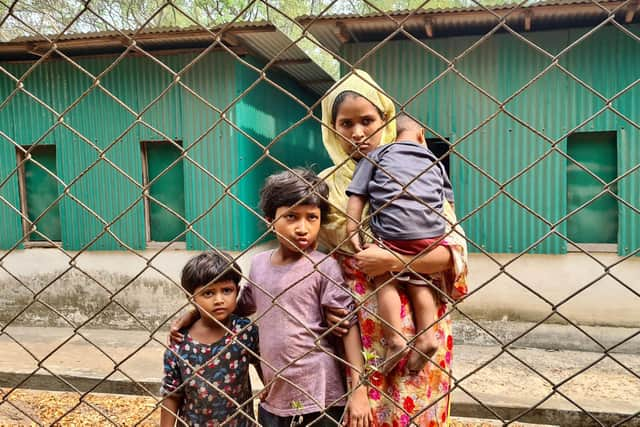Treatment of Rohingya Muslims is stain on world's conscience: Naz Shah
This February marked the two-year anniversary of the coup in Myanmar and the start of the country’s military rule. This rule has been brutal and oppressive, with continued attacks on civilians and opposition forces and parties.
According to the Burma Campaign UK briefing, since the attempted coup began, more than two million people have been forced to flee their homes, with the vast majority internally displaced within Burma.
Advertisement
Hide AdAdvertisement
Hide AdMore than 21,000 people have been arrested, with around 17,000 still in detention. Under the previous military regime, there were usually just over 2,000 political prisoners. Thousands of civilians and members of resistance forces have been killed. Restrictions on freedom of speech, the media and the internet have increased significantly.


The Burmese military effectively banned 40 political parties by deregistering them. Parties banned included the National League for Democracy, which won the last election, and significant ethnic political parties.
More than 60,00 civilian homes and properties have been destroyed. The Burmese military use airstrikes indiscriminately on almost a daily basis, with targets including medical centres, schools, religious buildings and camps for internally displaced people.
Data from Amnesty International estimates that thousands of people have been arbitrarily detained, with more than 1,000 opposition politicians, political activists, human rights defenders and others convicted in unfair trials. There have been reports of widespread torture and abuse at the hands of military groups, and in the last year alone, at least 356 people have died in police custody.
Advertisement
Hide AdAdvertisement
Hide AdA report last week from BBC journalists — the first to report from the country since the coup — uncovered the oppressive nature of the country under military rule.
Myanmar is, at this moment, a nation torn of its freedoms. It is a nation run by military checkpoint, with corners occupied by sandbags, there to protect automatic weapon-wielding police from attacks by freedom fighters. Recently, there have been reports of the Burmese military Government launching airstrikes on their own citizens. Just over a week ago, the military launched a brutal attack on civilians taking part in a ceremony in the Sagaing region, with women and children present. It is estimated that around 100 people died in the attack, including 20 to 30 children—an example of innocent bystanders falling victim to this brutal regime.
The Rohingya Muslim population in Myanmar have faced years of persecution at the hands of Government forces. In 1982, under the so-called Citizenship Act, they were effectively made stateless, and they now represent one of the largest populations of stateless people in the world.
An estimated 600,000 Rohingya Muslims remain in the Rakhine state of Myanmar, and this group are subject to persecution on a daily basis. The atrocities that the Rohingya Muslim population have been subjected to have been rightly condemned by the international community. Former UN High Commissioner for Human Rights Zeid Ra’ad al-Hussein described it as “a textbook example of ethnic cleansing.”
Advertisement
Hide AdAdvertisement
Hide AdMore than 730,000 Rohingya have fled the military’s crimes against humanity and acts of genocide, escaping to neighbouring countries such as Bangladesh. Even today, over one million Rohingya people live in makeshift settlements in squalid conditions in Cox’s Bazar in Bangladesh.
I thank Bangladesh, which is a country with a fast-growing economy, but it still has its own huge challenges and remains one of the poorest countries, and we must ensure that the international community keeps up its support.
There have been attempts to resettle Rohingya refugees in Myanmar, but that action has rightly been condemned by Human Rights Watch, which has stated: “Voluntary, safe, and dignified returns of Rohingya refugees to Myanmar are not possible while the military junta is carrying out massacres around the country and apartheid in Rakhine State.”
The conditions must be created to allow the Rohingya community to return home in safety, dignity and security. The Labour party has continuously called for the UK Government to heighten their work with international partners and call out regimes such as Russia and China, which are both alleged actively to have supplied the regime with oil and arms that have been used by the military to launch brutal attacks on the civilian population.
Advertisement
Hide AdAdvertisement
Hide AdLabour is deeply concerned about the ongoing and long-standing abuse of human rights in Myanmar. The treatment of the Rohingya minority has been, and continues to be, a stain on the world’s conscience.
Naz Shah is Labour MP for Bradford West. This is an edited version of a recent Westminster Hall speech.